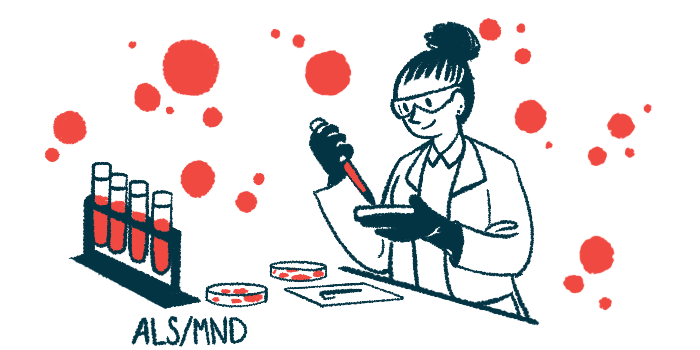Canadian ALS advocates lobby for research investment
Act now or patients will miss opportunity, leaders are told

The Canadian amyotrophic lateral sclerosis (ALS) community is calling for the country’s government to invest CA$50 million (about $36 million) over the next five years to support the Canadian Collaboration to Cure ALS.
Advocates, including people with ALS, caregivers, clinicians, and researchers, gathered at Parliament Hill on Oct. 2 to champion the investment. They wanted to send the message that the Canadian government is failing to invest adequately in ALS research, saying action is needed now to accelerate progress toward a cure.
“Every day without investment is a day lost for people and families facing ALS,” Tammy Moore, CEO of the ALS Society of Canada, said in an organization press release. “This is about securing data here at home, expanding access to clinical trials for all Canadians with ALS, and accelerating the search for treatments that people urgently need today and for the future.”
Nearly 4,000 Canadians are living with ALS, a quickly progressing neurodegenerative disease characterized by muscle weakness and the gradual loss of mobility, swallowing, speaking, and breathing abilities.
There is no cure for the disease, and the few available ALS treatment options have limited ability to slow disease progression and extend survival.
‘We are still far from a cure’
“ALS is a relentless disease with rapid progression and devastating outcomes, yet we are still far from a cure,” said Faye Murphy, an ALS Canada community ambassador who was diagnosed with the neurodegenerative disease last year.
The advocates said Canada is behind the curve relative to other countries that have invested heavily in ALS research, such as the U.S., Australia, and the U.K.
Many Canadians with ALS face barriers to participating in clinical trials and research, particularly those who live in rural, northern, or other underserved areas. A lack of opportunities at home has made some of them seek participation in U.S.-based studies, the society said.
The advocates also noted that Canadian scientists don’t have access to health data collected in other countries, and that research abroad is vulnerable to foreign funding cuts.
The ALS community says the gap is not because Canada doesn’t have the necessary expertise or infrastructure, but because there’s not enough federal support to sufficiently scale up research initiatives.
“Canada has the world-class talent and infrastructure to provide research opportunities nationwide, but federal leadership is missing,” Moore said. “Canadians have already invested, and we need the federal government to act now so their efforts pay off.”
An investment from the federal government would support three ongoing initiatives united through the Canadian Collaboration to Cure ALS: CAPTURE ALS, the Canadian Neuromuscular Disease Registry (CNDR), and the Canadian ALS Research Network (CALS).
CAPTURE-ALS is a globally collaborative, open-science platform collecting clinical, imaging, and genetic data, as well as biological samples from ALS patients that can be used by researchers to better understand individual variability in ALS. Additional funding would help the platform expand from four to 12 sites nationwide.
CNDR is a national registry that follows patients from the time of ALS diagnosis, with the goal of collecting real-world data that will inform better care, support trial access, and guide policy decisions. A federal investment would allow more Canadians to enroll.
CALS is a network of clinicians who support the implementation of global ALS clinical trials at Canadian sites. Additional funds could help expand access to experimental therapies for people in rural and remote communities who often have to travel long distances to find trial opportunities.
If the Canadian government doesn’t act soon, advocates said, Canadians now living with ALS won’t have the opportunity to contribute to a cure through these research efforts.
“Without research, ALS remains a death sentence; with it, we can move toward making ALS a treatable disease,” Murphy said. “We won’t have a voice for much longer, which is why federal investment in ALS research is so urgent.”







